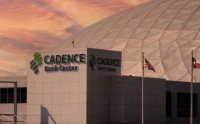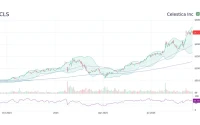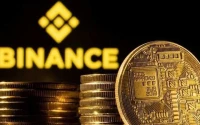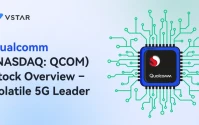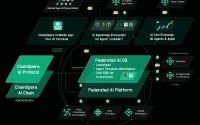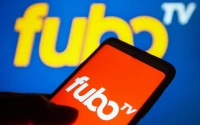I Was Blocked by the Internet's Past. And It Showed Me Our Future.
============================================================
I hit a wall today. Not a physical one, but a cold, digital barrier that was far more revealing. I was deep in a research rabbit hole, chasing a thread of an idea, when my screen went blank and was replaced by a stark, sterile message: "Access to this page has been denied."
The reason? "We believe you are using automation tools to browse the website."
I just sat back in my chair for a moment, the hum of my computer the only sound in the room. I wasn't running some malicious script or launching a denial-of-service attack. I was just... me. A researcher using modern tools to learn. But to the faceless, algorithmic gatekeeper of this particular digital kingdom, my curiosity was indistinguishable from an attack. My quest for knowledge was flagged as a threat.
And when I first saw that message, I wasn't just annoyed as a user; I felt a profound sense of sadness for the lost potential it represents. This isn't just a technical glitch. It’s a philosophical statement. It’s a digital door slamming shut, not just on me, but on a future we’re all trying to build. This single, sterile error page is a perfect, heartbreaking metaphor for the biggest challenge we face in the next decade: the old world’s immune system kicking in to fight off the future.
The New Scribes in the Monastery
Let's break down that accusation: "automation tools." To the system that blocked me, this means a malicious bot, a scraper, something inhuman and destructive. But what does it really mean in the 2020s? It means using an AI assistant to summarize research papers. It means running a script to find patterns in public data. It means leveraging the very technology we’ve built to help us think bigger, learn faster, and connect ideas that no single human mind could hold at once.
These tools are our new partners. They are the evolution of the search engine, the calculator, the library index card. They are extensions of our own minds. To put it in simpler terms, these "automation tools" are just a way to read a thousand books at once to find the one sentence that matters. And yet, the digital infrastructure we rely on, built on an older model of the web, sees this beautiful act of augmented curiosity as a crime.

It’s like the world after the invention of the printing press. Suddenly, knowledge could be replicated and distributed on a scale that was previously unimaginable. It was a terrifying prospect for the scribes and the church, the institutions that had held a monopoly on information for centuries. Their power was in scarcity. They controlled who could read, what could be read, and how it was interpreted. The printing press was an "automation tool" that threatened to burn that entire system to the ground. Did they embrace it? Of course not. They tried to control it, to license it, to shut it down.
We're living through the digital equivalent of that moment right now. The vast, decentralized brain of the internet is our new library of Alexandria, and AI is our printing press—a tool that can read, synthesize, and create connections at lightning speed. But the old gatekeepers, the digital scribes, have built walls around their monasteries. Their servers, governed by rigid, unthinking rules, can't tell the difference between a scholar and a vandal. So, they just lock the doors.
This raises some genuinely profound questions we need to ask ourselves. Who gets to decide which tools are acceptable for learning? Is the goal of a website to protect its data at all costs, or is it to share its knowledge with the world? And as our tools become exponentially more powerful, are we building an internet that empowers curiosity or one that punishes it?
A Symphony We Can't Hear Yet
Imagine a biologist trying to find a cure for a rare genetic disease. There are hundreds of thousands of research papers, clinical trial results, and protein-folding models scattered across the globe in different databases. No human, or even a team of humans, could ever hope to read and connect all of it. But an AI could. An "automation tool" could scan that entire global library in a matter of hours, looking for a hidden connection, a forgotten data point, a link between two studies that no one ever thought to combine.
That potential is just sitting there, waiting for us. The cure for Alzheimer's might not be in a future discovery but in a connection between two existing papers that we simply haven't had the ability to make. The solution to our energy crisis might be hiding in a synthesis of materials science, chemistry, and fluid dynamics research that an AI could perform before breakfast. The speed of this is just staggering—it means the gap between a problem and its solution is closing faster than we can even comprehend, but only if we’re allowed to run the query.
Every time a wall like the one I hit goes up, we’re choosing to stay deaf to that potential symphony of ideas. We are telling the most powerful intellectual partners we've ever created to stay outside the library. We're forcing our best and brightest minds to work with one hand tied behind their back, limited to the slow, linear process of human reading when we could be soaring.
Of course, this comes with immense responsibility. We can't just unleash these tools without thought. There is a real difference between automation for understanding and automation for exploitation. But building crude, indiscriminate walls is an act of fear, not of wisdom. The challenge isn’t to block automation; it’s to build a more intelligent, trusting, and collaborative digital world where our systems can recognize the signature of genuine curiosity and welcome it with open arms. We need digital doormen, not digital guards.
Let the Explorers In
That error message gave me a "Reference ID," a meaningless string of characters to identify my specific instance of being blocked. But it got me thinking. We are the reference ID. Each one of us, with our questions, our passions, and our drive to understand the universe a little bit better, is a unique query being sent out into the world.
To build walls against the very tools that amplify that human drive is a tragic failure of imagination. It's a retreat into the past. The future of progress—in science, in art, in human understanding—won't be human versus machine. It will be human with machine. It will be a partnership. It’s time we started building a web that understands that. It's time to tear down the walls and open the doors.
